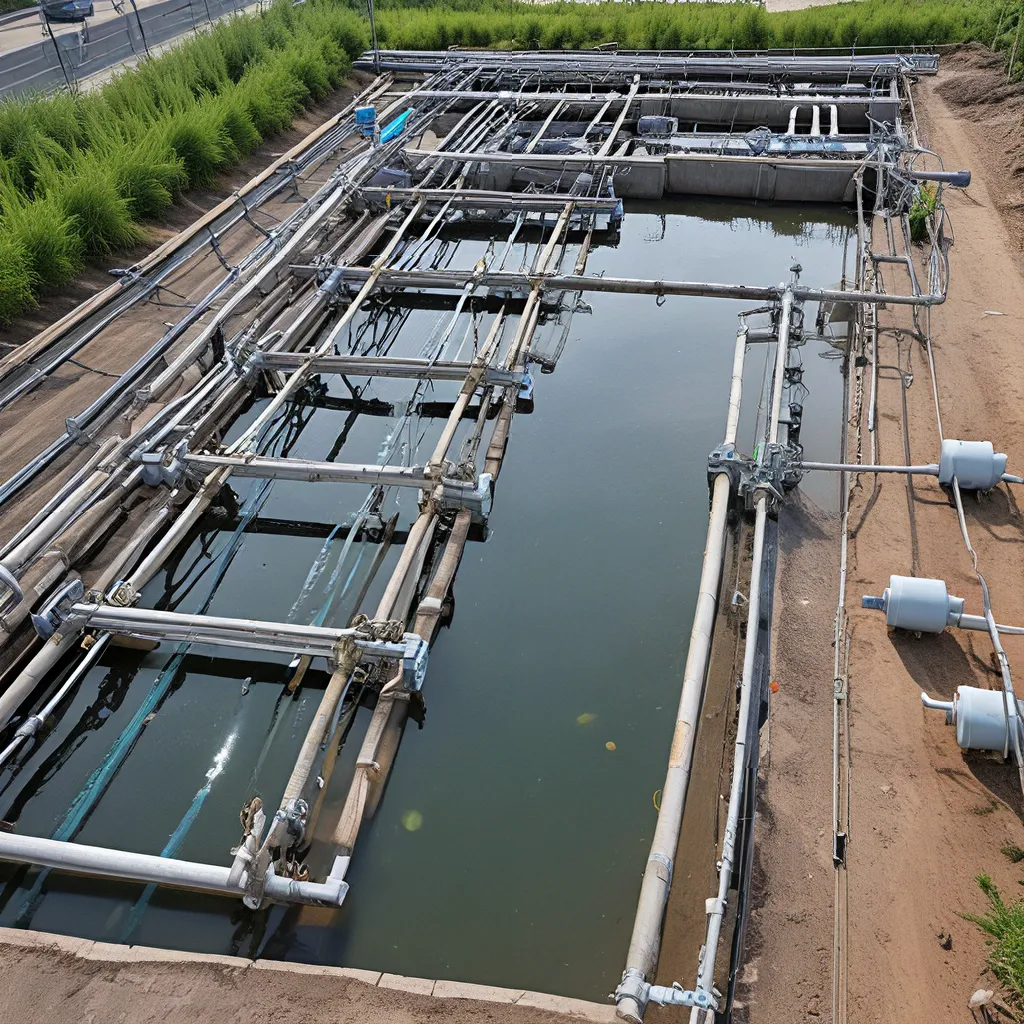
As an environmental enthusiast, I’ve always been fascinated by the incredible complexities of wastewater treatment. It’s a field that seamlessly blends cutting-edge technology with the stewardship of our precious water resources. Recently, I’ve been captivated by the advancements happening in this industry, particularly the integration of artificial intelligence (AI) and automation.
Let me take you on a journey to explore how these innovative approaches are transforming the way we manage and optimize our wastewater treatment systems. Buckle up, because this is going to be an eye-opening ride!
The AI Revolution in Wastewater Treatment
When I first learned about the potential of AI in wastewater treatment, I have to admit, I was a bit skeptical. After all, how could a digital system possibly comprehend the complex biological and chemical processes involved in purifying our water? But as I delved deeper, I was amazed by the remarkable capabilities of this technology.
Recent studies have shown that AI-powered systems can analyze vast amounts of real-time data from wastewater treatment plants, identifying patterns and anomalies that would be virtually impossible for human operators to detect. By constantly monitoring parameters like pH levels, dissolved oxygen, and microbial activity, these AI algorithms can proactively identify potential issues and optimize the treatment process before problems arise.
But it doesn’t stop there. AI is also being used to enhance the decision-making of wastewater treatment professionals. Predictive models can forecast equipment failures, recommend maintenance schedules, and even suggest process modifications to improve efficiency and reduce energy consumption. It’s like having a team of highly specialized experts on call, 24/7.
And the implications of this technology go far beyond just optimization. AI-powered systems can also help identify and mitigate emerging contaminants, such as pharmaceuticals, microplastics, and PFAS (per- and polyfluoroalkyl substances) – a growing concern in the industry. By analyzing complex data patterns, these systems can detect the presence of these emerging pollutants and guide the development of targeted treatment strategies.
Frankly, the more I learn about the AI revolution in wastewater treatment, the more excited I become about its potential to transform the industry. It’s like we’re finally unlocking the hidden superpowers of our water infrastructure!
Embracing Automation for Efficiency and Resilience
But AI is just one piece of the puzzle. The other game-changer in the world of wastewater treatment is automation. I know, I know – the idea of robots taking over our water treatment plants might sound a bit like a sci-fi movie. But the reality is, automated systems are already proving to be invaluable in enhancing efficiency, reducing human error, and increasing the overall resilience of these critical facilities.
Recent guidance from the White House has highlighted the importance of embracing automation and AI to strengthen the governance and management of our nation’s infrastructure, including wastewater treatment plants. By integrating these technologies, we can minimize the impact of staffing shortages, ensure consistent and reliable operations, and free up human resources to focus on more strategic and innovative initiatives.
But it’s not just about the nuts and bolts of operation. Automation is also revolutionizing the way we monitor and maintain our wastewater treatment systems. Robotic inspections, remote sensing, and predictive maintenance algorithms are enabling us to identify issues early, prevent equipment failures, and optimize the lifespan of our critical infrastructure.
Emerging research suggests that automated control systems, coupled with real-time data analytics, can dramatically improve the energy efficiency and resource recovery capabilities of wastewater treatment plants. By automating the adjustment of chemical dosages, aeration, and other process parameters, these systems can reduce energy consumption and maximize the recovery of valuable byproducts, such as biogas and reclaimed water.
As I explore the world of automated wastewater treatment, I can’t help but feel a sense of awe and excitement. It’s like we’re unlocking a new era of resilience and sustainability in an industry that’s critical to the health of our communities and the environment. And the best part? Alpha Wastewater is at the forefront of this revolution, offering cutting-edge solutions that harness the power of AI and automation to transform the future of water management.
The Future is Bright (and Clean)
As I reflect on the incredible advancements happening in the world of wastewater treatment, I can’t help but feel a sense of optimism and wonder. The integration of artificial intelligence and automation is revolutionizing the way we manage and optimize our water infrastructure, enhancing efficiency, improving resilience, and unlocking new possibilities for resource recovery and environmental protection.
Sure, there are still challenges and uncertainties to navigate, like addressing data privacy concerns, ensuring ethical AI development, and maintaining public trust. But the potential of these technologies to transform the wastewater industry is undeniable. And with forward-thinking companies like Alpha Wastewater leading the charge, I’m confident that we’re well on our way to a future where clean water is abundant, energy-efficient treatment is the norm, and sustainability is the driving force behind every drop.
So, what are we waiting for? Let’s dive in and explore the endless possibilities of AI-powered, automated wastewater treatment. The future is bright – and it’s clean!